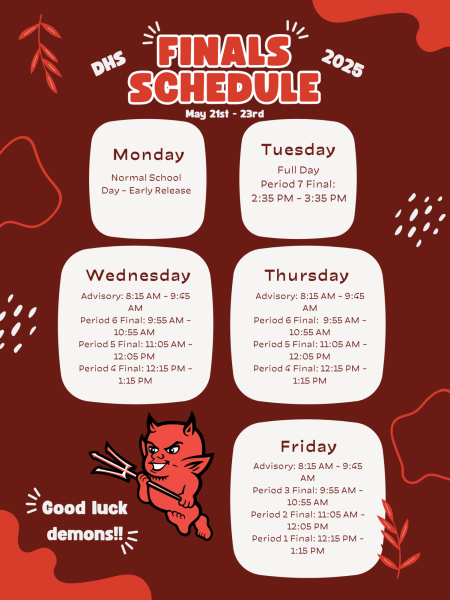Ready, Set, Stretch for a 5!
This chart from the AP English Language and Composition registration slides presented to sophomores in anticipation of enrollment opening for next year’s classes explains the potential college credits you could earn within the state of Colorado. The credits earned could save students thousands of dollars down the line.
The AP Exams are in May. With each passing week, that date seems terrifyingly more imminent. The practice exams will be in March and after that, the AP teachers will change gear to full review mode. It seems scary, but with the right preparation students can pass the exams with a three or even higher.
To review for anyone who might not know: AP stands for advanced placement. At the AP exams at the end of the year, students have an opportunity to earn valuable college credits. If they have the necessary score, usually a three, but sometimes a four or a five, they will earn college credits (three is considered passing). The exams are cumulative, challenging, and don’t usually go into your actual grade, as AP exams are optional.
Most students will probably need to study outside of class in order to reach their AP goals. Some literature recommended by Mr. Flom, an academic advisor, includes Strive for a Five, Barron’s, and the Princeton Review.
Strive for a Five practice test books average at around $30 on Amazon. Princeton Review books tend to lean closer to $20 and can be found at the public library, though their copies tend to lean more towards SAT prep. Barron’s prep books also seem to sell for around $20, though you might be out of luck at the library.
Mr. Flom also suggested, “I am a firm believer in getting a study group of 3-4 other students and making a plan of when and where the group is going to study, [as it] is very beneficial.”
Study groups are certifiably invaluable. Having the right people in the right environment supporting each other is exactly what many students need. In addition to the obvious benefit to your exam success, they also prove helpful to maintaining desirable grades in your toughest classes, and in our increasingly digitalized world, the interaction with another human with similar struggles makes things feel just a bit more bearable.
If it seems imperviously challenging, it’s because these courses are designed to be college-level. Even without the benefit of college credits, the additional weight of these courses could prove critical to future college acceptance.
Also, it’s important to understand that the exams are heavily curved. A series of disappointing multiple-choice answers could still land you with something above a three if you can make up those points on another part of the exam (though most teachers would hope that you don’t miss easy money questions) even if those same missed questions would sink your grade on a summative test.
Hopefully, these strategies will make you feel less like tearing out your hair and more like you’re in a cinematic training montage. The more confident and ready you are walking into the exams, the more likely you are to get your desired score come July when they are inevitably released. All it takes is a bit of savvy time management and a steadfast commitment to your dreams to bring them closer to being realized.












